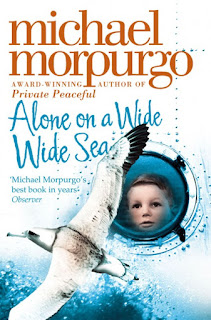 (Audiobook read by Shelley Atkinson)
(Audiobook read by Shelley Atkinson) Reviewer: JJ Marsh
What we thought: You can see why this won the Bailey’s Prize.
McInerney has a skill with voice, but not just the one. This novel is populated by voices, personalities and characters, causing the reader to change her/his mind every chapter and make you care about every last one of them, even if they get on your nerves. By the end, it feels like this is your own extended, unruly, frustrating and loveable family.
The book is set in the city of Cork, Ireland. It’s big and small and complex and simple and sad and yes indeed, glorious.
There’s a dead man on the floor and someone has to clear up the mess. One body affects several lives. A criss-crossing series of connections mean that one accident has a ripple effect, disrupting some futures and dredging some pasts. Some stories make you laugh, others induce tears of frustration and impotence. And the chance meetings and coincidences, drawing every thread into the tapestry is beautiful and somehow inevitable.
A wonderful patchwork of stories connect to make a rich, emotionally arresting whole commentary on faith, beliefs and community, as if The Sopranos was set in Cork.
I listened to the audio version and Shelley Atkinson’s talented voice draws you into the story so effectively, you feel like more of a bystander than a reader.
A real treat.
You’ll enjoy this if you liked: The Works by Joseph Connolly, The Casual Vacancy by JK Rowling or Inishowen by Joseph O’Connor
Avoid if you don’t like: Social commentary, swearing, violence
Ideal accompaniments: Pork scratchings, a glass of Tullamore Dew and The Pogues singing Dirty Old Town
Genre: Literary fiction
Buy on Amazon













